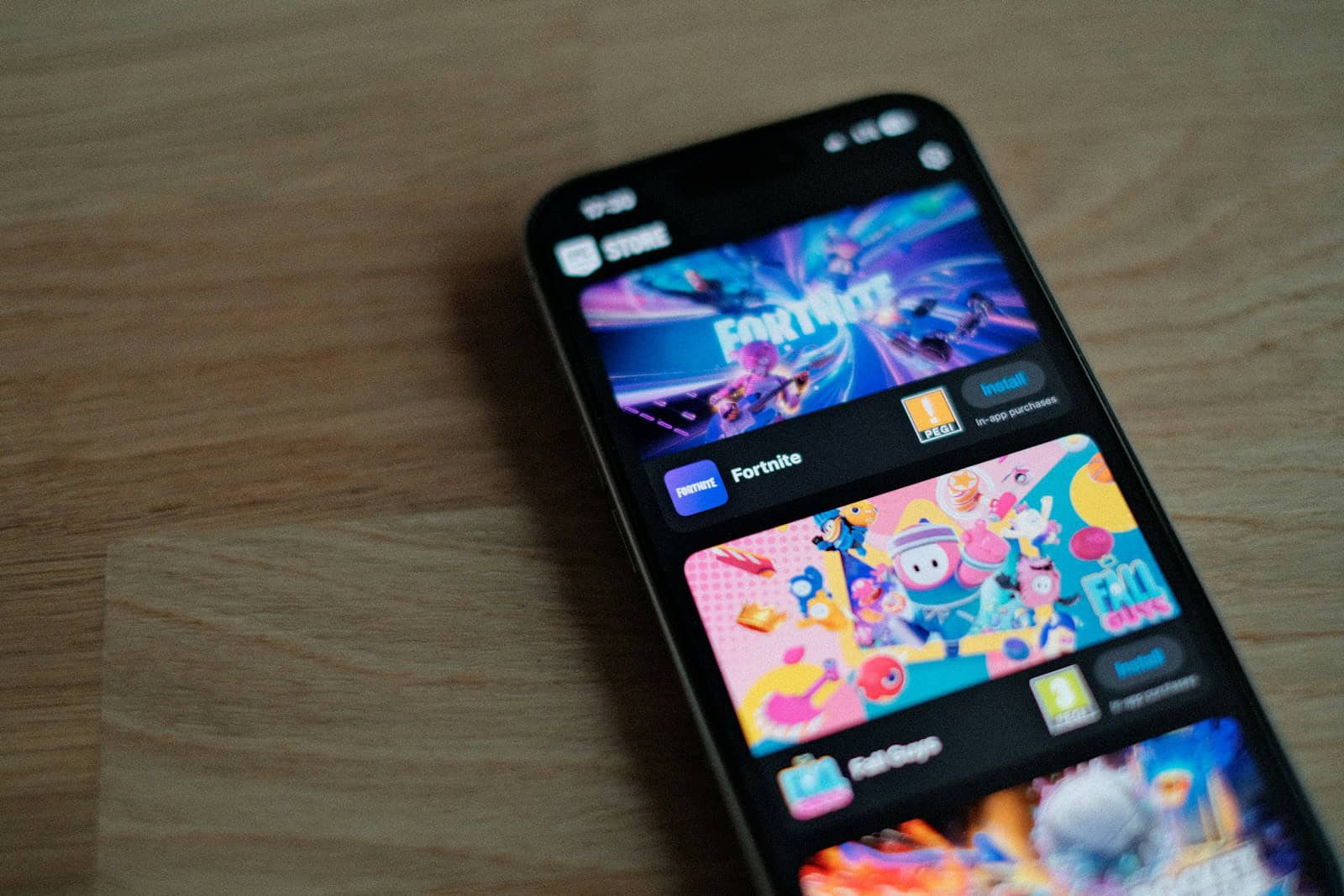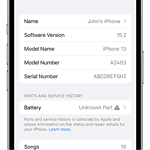Fortnite is officially making a comeback on iPhones in the United States, marking the end of a nearly five-year standoff between Epic Games and Apple. The return follows a dramatic courtroom twist, where a federal judge ruled that Apple willfully violated a 2021 injunction intended to curb its monopolistic grip on app distribution and payments.
The Legal Showdown: Epic vs. Apple
The feud began in 2020 when Epic Games introduced a direct payment option in Fortnite to bypass Apple’s 30% App Store commission. Apple swiftly removed Fortnite from the App Store, triggering a lawsuit that would become one of the most closely watched antitrust cases in tech history.
Fast-forward to April 2025: Judge Yvonne Gonzalez Rogers found Apple in contempt of court for flouting the injunction that required the tech giant to allow developers to link to alternative payment systems. Apple’s decision to replace its 30% cut with a still-substantial 27% fee on out-of-app transactions was seen by the court as an intentional and deceptive workaround. The ruling didn’t just criticize Apple—it accused executives, including Tim Cook, of knowingly violating the court order and referred the case to federal prosecutors for possible criminal contempt charges.

Fortnite’s Return Through the Epic Games Store
Epic Games CEO Tim Sweeney took to social media to celebrate the ruling and confirm that Fortnite will return to iOS via the Epic Games Store as early as next week in the U.S. This marks a significant shift in Apple’s walled-garden approach, and it’s the first time users will be able to access Fortnite outside the App Store ecosystem on iPhones.
Sweeney also extended what he called a “peace proposal” to Apple: if the company applies the court’s payment-link freedoms globally, Epic would drop all remaining litigation and fully re-embrace iOS. Apple has not yet responded publicly.
What This Means for iPhone Users and Developers
Here’s what iOS users can expect:
| Feature | Before | After Ruling |
|---|---|---|
| Fortnite on iPhone | Removed since 2020 | Returning via Epic Games Store |
| Alternative Payments | Banned or heavily restricted | Now allowed (no 27% Apple fee) |
| App Distribution | Only via App Store | Third-party app stores now allowed in the EU and soon in U.S. |
Apple’s hand was already being forced in Europe due to the Digital Markets Act (DMA), which mandates broader app access and payment flexibility. Now, a similar shift is underway in the U.S., with this ruling potentially opening the floodgates for more third-party stores, lower app prices, and greater developer autonomy.
A Turning Point for Mobile Gaming
The return of Fortnite isn’t just a victory for Epic Games—it’s a win for the broader app development community and for consumer choice. Apple’s once-impenetrable hold on iOS app distribution is starting to crack, and Fortnite’s reappearance on iPhones may become a symbolic milestone in the ongoing battle over digital platform fairness.
Fortnite’s relaunch date hasn’t been locked in, but Epic says it will be “very soon.” When it does return, it’s expected to run natively through the Epic Games Store, potentially alongside other titles and apps previously banned under Apple’s strict rules.
Key Takeaways
- Fortnite is returning to iPhones after a four-year ban following a court ruling against Apple.
- The judge found Apple violated a 2021 injunction meant to stop anticompetitive practices.
- iPhone users will soon be able to download Fortnite through the Epic Games Store rather than the App Store.
Fortnite’s Return to US iPhones
After years of legal battles between Epic Games and Apple, Fortnite is set to make its comeback to iOS devices in the United States. This major development follows significant court rulings that have reshaped the relationship between app developers and Apple’s ecosystem.
Background of the Fortnite Ban
In August 2020, Epic Games deliberately violated Apple’s App Store policies by introducing a direct payment option in Fortnite. This move bypassed Apple’s 30% commission on in-app purchases. Apple promptly removed Fortnite from the App Store, and terminated Epic’s developer account.
The removal sparked an intense legal battle. Epic filed lawsuits claiming Apple operated a monopoly through its App Store policies. The case highlighted concerns about Apple’s control over app distribution on iOS devices.
Many iOS users were caught in the middle of this dispute. Players who had already downloaded Fortnite could still play, but couldn’t receive new updates. New players had no way to install the game on their iPhones or iPads.
Current Status in the App Store
Epic Games CEO Tim Sweeney has announced that Fortnite will return to the US iOS App Store next week. This follows a California judge’s ruling that Apple willfully violated a previous court order from 2020.
Epic has also offered a “peace proposal” to Apple. The company stated it would bring Fortnite back to iOS in all countries if Apple extends the court-ordered “friction-free” payment options globally.
The return comes after significant changes to App Store policies. These changes now allow developers to include links to alternative payment methods, reducing reliance on Apple’s payment system.
Implications for iOS Users
The return of Fortnite brings good news for millions of iPhone and iPad owners. Players can soon download the popular battle royale game directly from the App Store without needing workarounds.
iOS users will likely have access to the latest version of Fortnite with all current features and updates. This means syncing progress across platforms and participating in the latest in-game events.
The case may set precedents for other apps too. Users might see more payment options in various apps, potentially resulting in lower prices as developers can avoid Apple’s commission fees.
Game developers using Epic’s Unreal Engine will also benefit from improved relations between Epic and Apple. This could lead to more high-quality games reaching the iOS platform in the future.
Apple vs. Epic Games: The Ongoing Legal Battle
The legal fight between Epic Games and Apple has reshaped the mobile app industry with major implications for developers and consumers alike. A federal judge recently ruled that Apple violated court orders in this high-profile antitrust case, potentially leading to criminal investigations.
Overview of the Lawsuit
The conflict began in August 2020 when Epic Games intentionally bypassed Apple’s payment system in Fortnite. This bold move prompted Apple to remove the popular game from its App Store.
Epic Games, led by CEO Tim Sweeney, then filed a lawsuit claiming Apple operated as an illegal monopoly. They argued that Apple’s control over iOS app distribution and mandatory 30% commission on in-app purchases violated antitrust laws.
The case went to trial in May 2021. Judge Yvonne Gonzalez Rogers delivered a mixed ruling that same year. She rejected most of Epic’s claims but ordered Apple to allow developers to link to outside payment methods.
This case became a symbol of the growing tension between app developers and tech platforms that control access to millions of users.
Key Legal Issues: Payments and Revenue Sharing
At the heart of this dispute is Apple’s payment system. The tech giant requires all in-app purchases to flow through Apple’s system, taking a 15-30% cut of all transactions.
Epic challenged this requirement by implementing a direct payment option in Fortnite. This allowed players to buy V-Bucks (Fortnite’s in-game currency) at a discount while bypassing Apple’s fees.
The court’s ruling ordered Apple to permit developers to include links to alternative payment methods. However, Epic claims Apple has continued to engage in anticompetitive conduct despite the injunction.
Apple recently tried to comply by introducing a new 27% fee for transactions made outside its system. This move was called “blatant” violation of the court order by Epic Games in March 2024.
Antitrust Claims and Monopoly Allegations
Epic Games’ lawsuit centers on monopoly claims. They argue Apple unfairly controls both app distribution and payment processing on iOS devices.
Epic contends Apple’s policies harm competition by:
- Blocking alternative app stores
- Forcing developers to use Apple’s payment system
- Taking excessive commissions on all transactions
- Limiting price competition
Apple defends its practices by pointing to security benefits and the substantial investments in developer tools and the App Store ecosystem. They argue the App Store isn’t a monopoly because developers can create apps for Android or other platforms.
The judge found Apple didn’t qualify as a monopolist under federal law but did violate California’s competition laws. This partial victory for Epic opened the door for developers to inform users about payment options outside Apple’s ecosystem.
Potential Impact on Developers and Consumers
This legal battle could transform how mobile apps work. If Epic ultimately prevails, developers might gain more freedom in how they sell digital goods.
For consumers, changes could mean:
- Lower prices as developers avoid Apple’s fees
- More payment options within apps
- Potentially different user experiences across apps
For developers, the stakes include:
- Reduced commission fees
- Greater control over their business models
- The possibility of alternative app stores on iOS
The latest court ruling finding Apple in violation of the injunction increases pressure on Apple to make meaningful changes to its policies.
This case could set precedents affecting not just Apple but other digital marketplaces like Google Play, Steam, and console gaming stores. The outcome may reshape the balance of power between platform owners and the developers who create content for them.
Frequently Asked Questions
The Fortnite and Apple conflict has led to many changes for mobile gamers. Here are answers to common questions about this ongoing situation.
What is the current status of ‘Fortnite’ returning to the iOS App Store in the US?
Epic Games has announced plans to bring Fortnite back to iOS in the US. The game has already returned to iOS devices in the European Union through Epic’s own mobile app store.
For US players, the return is still in progress. Epic CEO Tim Sweeney has offered a “peace proposal” to Apple, suggesting a path forward for the game’s reinstatement.
What were the key outcomes of the legal battle between Epic Games and Apple?
The legal dispute began in August 2020 when Epic Games added a direct payment option in Fortnite. This bypassed Apple’s payment system and violated App Store rules.
Apple quickly removed Fortnite from the App Store and terminated Epic’s developer account. Court rulings have been mixed, with some findings favoring Epic’s antitrust claims and others supporting Apple’s right to control its platform.
In March 2024, Apple committed to reinstating Epic’s developer account after pressure from the European Commission.
What are the implications of ‘Fortnite’s’ reinstatement for users on Apple devices?
Players who already have Fortnite installed on their iPhones can still access the game but haven’t been able to receive updates. This has left these users with an outdated version of the game.
New users haven’t been able to download Fortnite at all. The game’s return would allow both existing and new players to enjoy current versions with all features and updates.
The reinstatement would also reconnect iOS players with the wider Fortnite community across platforms.
How does the Epic Games versus Apple case affect the mobile gaming industry?
This legal battle has sparked major discussions about app store policies and fees. Many developers watch closely as it could set precedents for how mobile platforms operate.
The case highlights tensions between app creators and platform holders over the 30% commission charged by app stores. Some markets, like the EU, have already implemented new laws forcing Apple to allow alternative app stores.
These changes could lead to more options for both developers and players in how games are distributed and monetized on mobile devices.
What steps did Epic Games take to secure the return of ‘Fortnite’ on the iOS platform?
Epic Games pursued multiple strategies including legal action in courts across different countries. The company argued that Apple’s practices were monopolistic and harmful to developers and consumers.
In recent developments, Epic has shifted to a more conciliatory approach. Tim Sweeney publicly offered a peace proposal to Apple, signaling a potential end to the conflict.
Epic also worked with regulators, particularly in Europe, which helped pressure Apple to restore Epic’s developer account.
When was the decision made to reinstate ‘Fortnite’ on the US App Store, and what were the influencing factors?
The full reinstatement is still in progress, with recent developments coming in early 2024. In March, Apple agreed to restore Epic’s developer account after European regulatory pressure.
Tim Sweeney’s recent peace proposal followed a court ruling that criticized Apple’s compliance with previous legal orders. This proposal aims to resolve the ongoing dispute.
Key factors influencing these developments include changing regulations worldwide, continued public interest in Fortnite, and possibly the financial impact of the game’s absence from one of the largest mobile markets.







